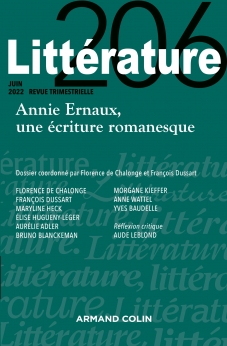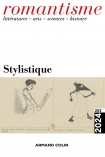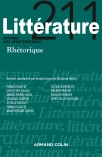
LITTÉRATURE Nº206 (2/2022)
Pour acheter ce numéro, contactez-nous
Recevez les numéros de l'année en cours et accédez à l'intégralité des articles en ligne.
Chez Annie Ernaux, en dépit d’une volonté d’élucidation sociohistorique souvent mise en avant, l’objectivation théorique est toujours prise dans l’épaisseur romanesque de la mémoire et de la sensation. Le « je transpersonnel », auquel recourt le plus souvent l’auteure d’Écrire la vie, ne correspond ni à une généralisation de l’expérience, ni à une vaine contemplation « narcissique » : il est plutôt le signe d’un Narcisse négatif, d’une disparition énigmatique dans l’altérité. Un romanesque de l’autre – de soi devenant autre – apparaît en effet, étroitement lié à l’énonciation décentrée et au devenir-imperceptible d’une femme qui se dissout dans la lumière.
In Annie Ernaux, in spite of a will to sociohistoric elucidation often put forward, the theoretical objectivation is always taken in the romantic depth of memory and sensation. The « transpersonal I », to which the female writer of Écrire la vie more often resorts, corresponds neither to a generalization of experience nor to a vain « narcissistic » contemplation : it is rather the sign of a negative Narcissus, of an enigmatic disappearance into otherness. A romantic of the other – of self becoming other — indeed appears as intimately linked with the decentered enunciation and with the becomingimperceptible of a woman who dissolves herself into light.

